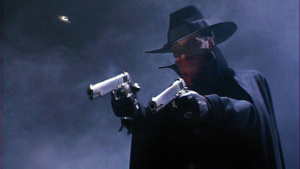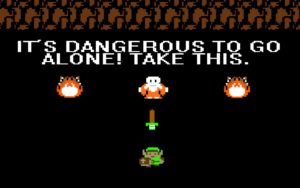One of the wonderful things about indie publishing is that you don’t have to publish under a vanity press name or any other publishing service name. You can publish under your own company’s name. For some indie writers it’s not that big a deal and that’s okay. However, for people like me who have been entrenched in the sales side of the industry (almost two decades for me) it’s a sign of professionalism. The second booksellers see a vanity press or publishing service name we automatically regard the book as amateurish. (A small press that we’ve never heard of will always be in higher esteem than a vanity press.) Having your own house name is one of those little details that can make stores take you more seriously.
I usually don’t include disclaimer in my posts but in this particular instance I feel it’s necessary because I am not a lawyer or a business consultant. Besides, this isn’t a how to start your own company post. There are great posts from independent business organizations that explain it better than I can. I’m just sharing my own experience from starting my own publishing company. There are a lot of things that took me by surprise that I wish I’d been better prepared for.
Here’s a list of things that I learned along the way that might help ease the way for you:
- Take the time to check local and national databases of registered business names. There’s nothing more embarrassing then picking a name that’s already taken. Yes, it’s extremely tedious and the print on the website is tiny. You still need to do it. Once you’re sure your name is unique register it in your state right away to stake your claim. Registering it nationally is a good idea too. Yes, there’s a registration fee (one for state and another for national) so be prepared for that.
- When deciding whether to register your company as a DBA (doing business as)/ sole proprietorship or to go ahead and file as a LLC don’t think you’re selling yourself short by wanting to do the former. If you feel a DBA is right for your business at this point in time, that’s fine. If circumstances change later and you need the extra legal protection a LLC provides you can upgrade your business.
- Decide now if you want to take on authors other than yourself (along with the expense and bookkeeping that goes with it). It doesn’t matter if you have a website or not. The second an aspiring author, or the mother of an aspiring author, finds out you’re a publisher you will get asked that question. It’s not a matter of if you’ll be asked, it really is a matter of when. Knowing the answer ahead of time will help you maintain a certain level of professionalism.
- Know how copyright works as well as how and when to file for it. You’re the publisher so there won’t be anyone to do it for you. It’s a good idea for authors to know how that works regardless but it’s doubly important when you have your own publishing company.
- Speaking of you having to do everything, you’re also financing everything so it’s a good idea to sit down and figure out a budget or even write a full financial plan for your start up — not just for the company but for the first title you’ll publish too. How much will it cost to: register your business, get a website, buy ISBNs and barcodes, get cover art, hire an editor to go over the manuscript, purchase publishing software, etc. If you need a few more months to save up day job income to buy ISBN numbers then maybe you should push out that publication date to give you the time you need. It’s also a good idea to figure in a buffer for unexpected last minute expenses.
- Terms of service and other user agreements are the bane of modern existence. That being said you really do need to read every item and subheading so you understand what the sites you’re selling your book(s) on expect of you. If they say that they’ll close your account and take down your titles if you break the agreement, they mean it. With that in mind I recommend giving yourself twice as much time to read them then you think you’ll need because trust me, you’re going to want to take a break on some of them. I also recommend that you don’t do more than one a day. They kinda blend together if you try to do all of them in quick succession.
- Keep receipts for everything! All of the expenses for the start up as well as the publishing costs are tax deductible.
- Don’t forget that you’re still a writer. The business side can easily take over your life. Make sure you’re still spending time writing the next release. With that in mind, my last bit of advice is…
- Be realistic. Don’t be afraid to farm out some less desirable tasks to someone else. I’m not saying that you have to take on an employee but you can take advantage of certain services that online retailers provide. I don’t have the storage space let alone the time and energy to fulfill book orders or process returns myself. But for a small percentage of the profits one of retailers I sell through will do that for me. I also have an accountant to handle my taxes. Being free of the headache and hassle so I have more time to write makes it a worthwhile expense.



